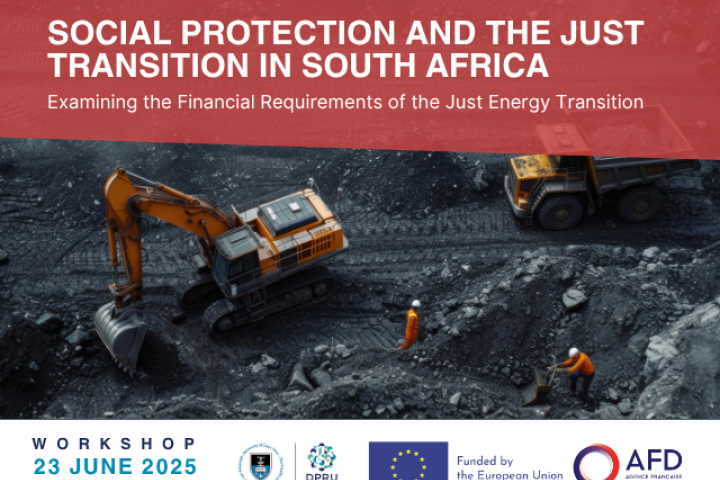Upcoming Workshop: Shaping Social Protection for a Just Energy Transition in South Africa

As South Africa begins to reshape its energy future, the country faces a critical policy challenge: how to transition away from coal without deepening existing inequalities or leaving workers behind. In response, DPRU with the financial support of the European Union (EU) and the Agence Française de Développement (AFD), has conducted an empirically grounded study aimed at informing the national dialogue. These findings will soon be released in a new research paper by Prof Haroon Bhorat and Dr François Steenkamp, titled: “Ameliorating the Consequence of Coal Job Destruction: A Policy Matrix Solution.”
The paper presents a policy matrix of social protection measures for workers in South Africa’s coal sector, paired with modelled cost estimates and potential financing strategies to mitigate the risk of deepening inequality during South Africa’s energy transition. It is a timely, evidence-based contribution to a national policy space that is urgent and deeply complex.
To mark the launch of this new paper, we are hosting a one-day high-level workshop in entitled Social Protection and the Just Transition in South Africa: Examining the Financial Requirements of the Just Transition.
Held in Johannesburg on 23 June, this event brings together government officials, union leaders, business executives, academics and other key stakeholders to engage in evidence-based dialogue and collaborative policy exploration. The agenda includes a presentation on the research and a high-level policy panel on implementation challenges and opportunities. Attendees will also have the opportunity to connect directly with the researchers and panellists shaping this important national conversation.
South Africa’s just energy transition cannot succeed without prioritising social justice, inclusive planning and adequate support for the country’s most vulnerable. By convening this dialogue and providing new research insights, DPRU and its partners aim to support effective, equitable policymaking that prioritises the wellbeing of affected workers and communities.
Keep an eye on our LinkedIn page for a post-event summary and access to the research.
